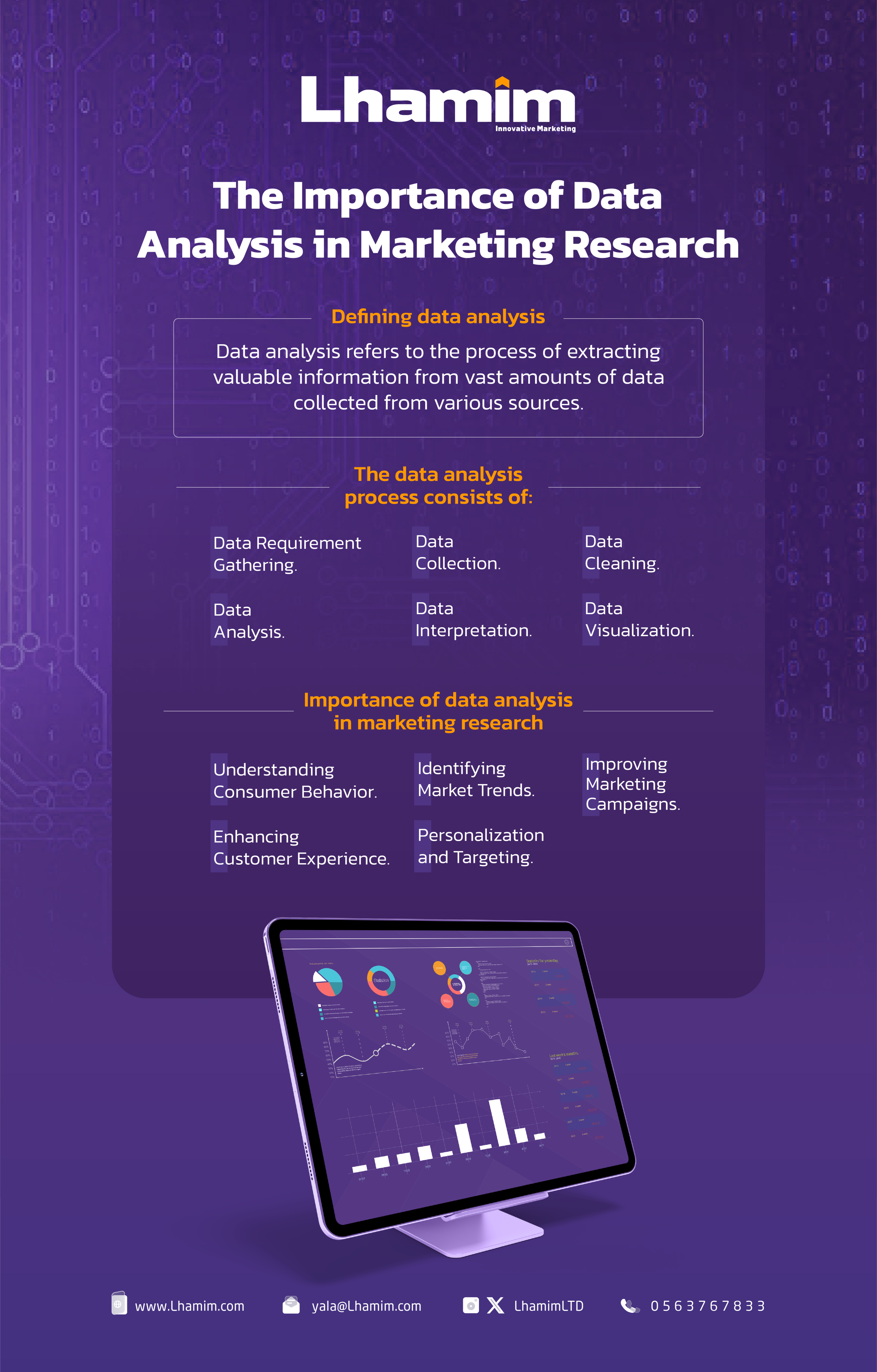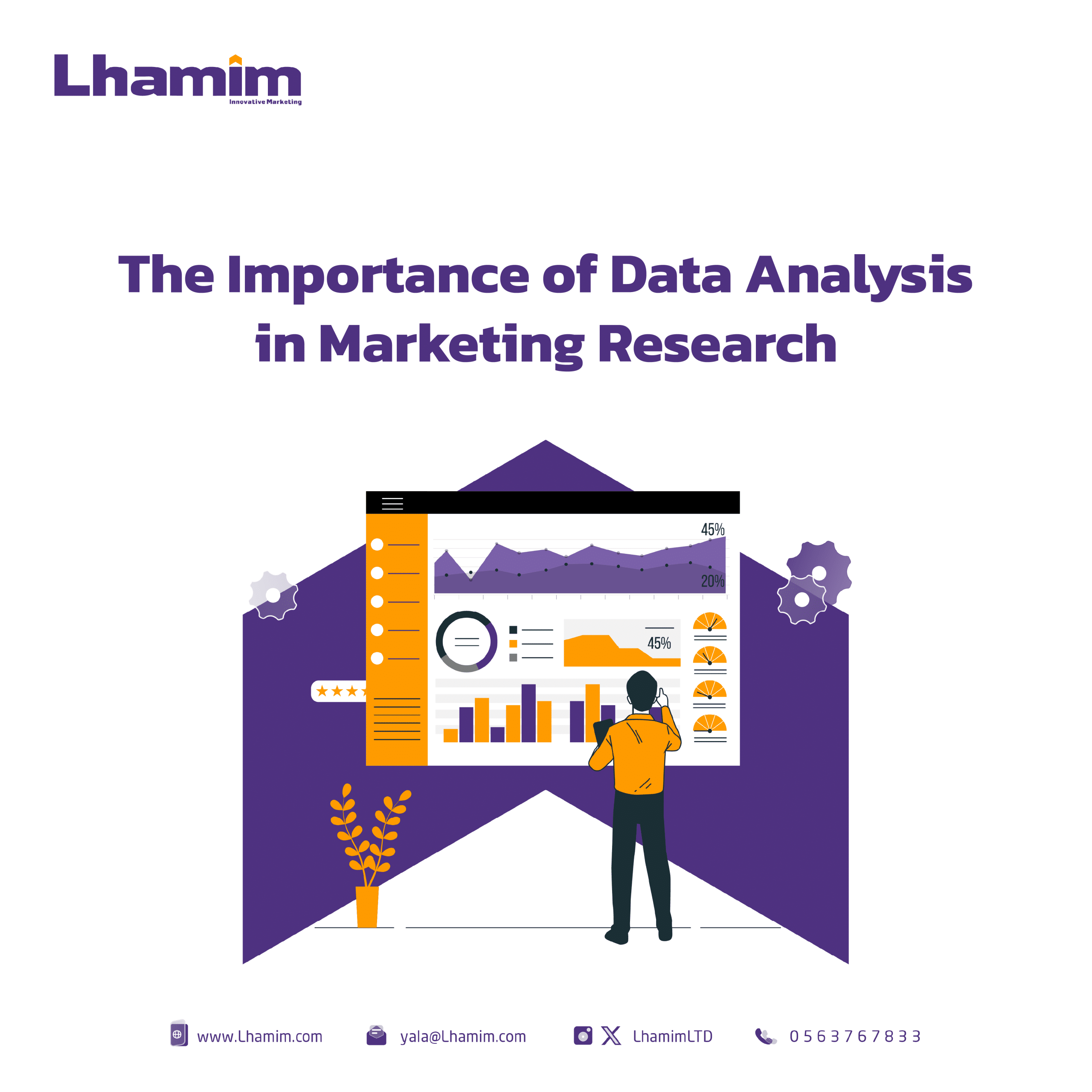In the ever-evolving world of marketing, data analysis has become an indispensable tool for businesses seeking to make informed decisions and stay ahead of their competition. Marketing research, combined with data analysis, provides valuable insights into consumer behavior, market trends, and the effectiveness of marketing strategies. In this blog, we will explore the significance of data analysis in marketing research and how it continues to shape the landscape of marketing in 2024.

Defining Data Analysis and Its Significance
Data analysis has emerged as a critical tool for businesses seeking to gain a competitive edge. Data analysis involves the systematic examination and interpretation of data to uncover meaningful insights and patterns. In the context of marketing research, data analysis refers to the process of extracting valuable information from vast amounts of data collected from various sources.
Data analysis in marketing plays a significant role in understanding customer behavior, preferences, and market trends. By analyzing and interpreting data, marketers can make informed decisions, develop effective marketing strategies, and deliver targeted messages to the right audience at the right time. Data analysis helps businesses gain a deeper understanding of their customers, identify opportunities for growth, and optimize their marketing efforts for maximum impact.
The data analysis process consists of:
Data Requirement Gathering:
Ask yourself why you’re conducting this analysis, what is the purpose of it, what type of data you want to use, and what data you plan to analyze, and how you will collect it.
Data Collection:
Based on the identified requirements in the previous step, it’s time to collect the data from your sources. Sources may include case studies, surveys, interviews, questionnaires, direct observation, and focus groups. Make sure to organize the collected data for analysis.
Data Cleaning
Not all the collected data will be useful for your task, so it’s time to sort and extract the relevant information. This step is necessary before sending the data for analysis.
Data Analysis
Here, you can use data analysis software and other tools to help you interpret and understand the data and draw conclusions. Data analysis tools include Excel, Python, R, Looker, Rapid Miner, Chartio, Metabase, Redash, and Microsoft Power BI.
Data Interpretation
After obtaining the results, you need to interpret them and come up with the best action plans based on your findings.
Data Visualization
Data visualization is an elegant way to present your information graphically in a simple manner so that people can read and understand it. You can use charts, graphs, maps, or a variety of other methods. Visualization helps you derive valuable insights by helping you compare datasets and observe relationships.

Importance of data analysis in marketing research
- Understanding Consumer Behavior
One of the primary goals of marketing research is to understand consumer behavior. By collecting and analyzing data from various sources, including social media, surveys, and website interactions, businesses can gain a deeper understanding of their target audience. Data analysis helps marketers identify patterns, preferences, and pain points of consumers, enabling them to tailor their marketing strategies to meet specific needs effectively.
- Identifying Market Trends
Market trends can significantly impact a company’s success. With the help of data analysis, marketers can spot emerging trends and adapt their strategies accordingly. By analyzing data from multiple channels, such as industry reports, customer feedback, and online searches, businesses can proactively respond to changing market dynamics, ensuring that their products and services remain relevant and competitive.
- Improving Marketing Campaigns
Data analysis empowers marketers to evaluate the performance of their marketing campaigns with precision. By tracking key performance indicators (KPIs) and analyzing the data, businesses can identify which marketing channels and tactics are most effective. This knowledge allows them to optimize their campaigns, allocate resources more efficiently, and achieve a higher return on investment (ROI).
- Enhancing Customer Experience
In 2024, customer experience has become a pivotal factor in shaping brand loyalty and advocacy. Data analysis helps businesses gauge customer satisfaction levels and uncover pain points in the customer journey. Armed with this information, companies can enhance their products, services, and overall customer experience, leading to increased customer retention and positive word-of-mouth marketing.
- Personalization and Targeting
Data-driven marketing enables businesses to create personalized experiences for their customers. By analyzing customer data, companies can segment their audience based on demographics, preferences, and behavior. This segmentation allows marketers to craft targeted messages and offers that resonate with specific customer segments, increasing the likelihood of conversion and customer engagement.
Conclusion
As we venture into 2024, the importance of data analysis in marketing research cannot be overstated. It serves as the bedrock for informed decision-making, enabling businesses to understand their customers better, identify market trends, optimize marketing campaigns, and deliver personalized experiences. Embracing data analysis in marketing research empowers companies to thrive in a dynamic and highly competitive business landscape. As we move forward, the integration of data-driven insights will undoubtedly continue to shape the future of marketing.
At Lhamim, we collect data and transform it into effective ideas and strategies to achieve your expectations and chart your position in the market.
Through:
- Building Marketing Plans.
- Mystery Shopper.
- Competitor Analysis.
- Scheduling Events for Your Brand.
- Customer Experience Study.
- Communication Strategies.
- Surveys.
- Quantitative and Qualitative Research.
Our team is ready to cooperate with you from now on, contact us.


